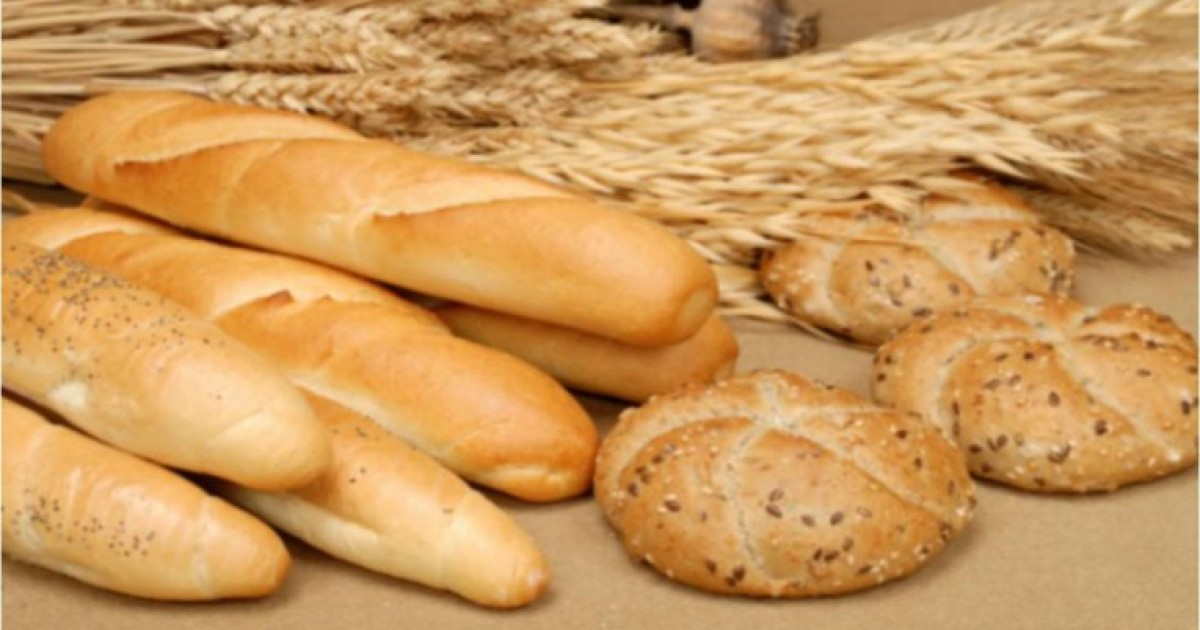The price of bread in Kosovo ranges from 40 cents to 60 cents, depending on the bakery that produces it and the city.
Until the beginning of the year, the price was 35 cents.
At that time, it has increased in places up to 50 cents.
But, in recent days, in some bakeries in Gjilan - a city in the east of Kosovo - the price of a loaf of bread weighing over 500 grams has increased from 50 to 60 cents.
The owner of the "Eqiponja" bakery there, Parparim Maloku, says that there are several factors that have led to the increase in price:
"...the rise in the price of flour and other products, but also the lack of workers.
Most of the workers are looking to leave Kosovo and to keep them at work, we have to increase their monthly salaries", says Maloku for Radio Free Europe.
Unlike Gjilan, in the capital of Kosovo, Pristina, there has been no movement in the price of bread recently.
The last increase was at the beginning of this year.
"The price of bread has not changed, it costs 50 cents.
The price is not reasonable, but what can we do", says Besmir Martinaj, owner of the bakery "Lindi" in the neighborhood "Dardania".
Kosovo has faced an increase in the prices of products and services since the end of last year, mainly due to disruptions in supplies caused by the coronavirus pandemic.
The Russian invasion of Ukraine, which started at the end of February, gave them a bigger boost.
Both Russia and Ukraine are among the world's biggest grain exporters, and the war between them has disrupted markets.
According to the Statistics Agency of Kosovo, the inflation rate in May this year reached 12.5 percent, from 0.2 percent in the same period last year.
And the biggest burden of this falls on the citizens.
Some have a minimum pension of 100 euros, and some a minimum salary of 130 to 170 euros.
Sadik Kurteshi is a pensioner and receives 100 euros per month.
He says that his family has 7 members and that, every day, he buys six loaves of bread, which cost three euros.
At this price, Kurtesh's pension is spent almost entirely on bread alone.
"I get a pension of 100 euros per month, like last year, like this year.
With the increase in prices, the pension has decreased.
The government should support businesses so that they don't raise prices", says Kurteshi.
"It is very expensive, salaries are not increasing and prices are constantly increasing", says Luljeta Slivova.
She works as a pharmacist in the private sector, where the average salary is around 380 euros per month.
In the Association of Millers of Kosovo, they refuse to comment on the increase in the price of bread, but say that, in recent days, there has been no increase in the price of either flour or wheat.
The leader of this association, Bashkim Zejnullahu, only says that there are sufficient quantities of these products on the market.
"In Kosovo, there are quantities of flour and wheat for the next two or three months, not counting the harvest-threshing campaign, which is expected to start next month", he says.
The price for a kilogram of flour is currently around 78 cents, compared to last year when it was 52 cents.
From the information office of the Ministry of Industry, Enterprise and Trade in Kosovo, they say that the market inspectors have confirmed the increase in the price of bread in some cities, from 50 to 60 cents.
"The market inspectors have requested the necessary documentation to assess whether the increase is a consequence of the increase in the prices of other products, such as: flour, oil... or is it an artificial and unjustifiable increase.
After the assessment, measures will be taken, in accordance with the legislation in force", says a statement of the Ministry of Trade, given to Radio Free Europe.
It does not specify what measures can be taken and whether the price of bread will be released.
Kosovo imports a large amount of flour.
In 2021, the country imported flour worth 2.1 million euros, while it exported amounts worth 89 thousand euros.
Last year, the amount of imported wheat reached the value of about 11 million euros, while amounts of about two million euros were exported.
In the Assembly of Kosovo, on June 30, a debate was held on the situation created by the increase in prices.
The opposition parties have asked the Government of Kosovo to take measures, reducing the excise duty and the rate of value added tax (VAT) on oil derivatives and essential products for three months - with the possibility of continuation, depending on the developments in the international markets.
VAT is a tax charged to the consumer on goods and services, while excise duty is a tax applied to excise goods, such as energy, tobacco or alcohol.
The party in power, the Vetëvendosje Movement, said that if the VAT is reduced, the revenues of the Kosovo Tax Administration, which fill the state coffers, will decrease.
On June 22, the Government of Kosovo approved an administrative instruction for regulating the prices of oil derivatives, which entered into force on June 27.
Their "price ceiling" is currently set every 24 hours.
The maximum for diesel is 1.84 euros, while for gasoline 1.75 euros.
/REL/
